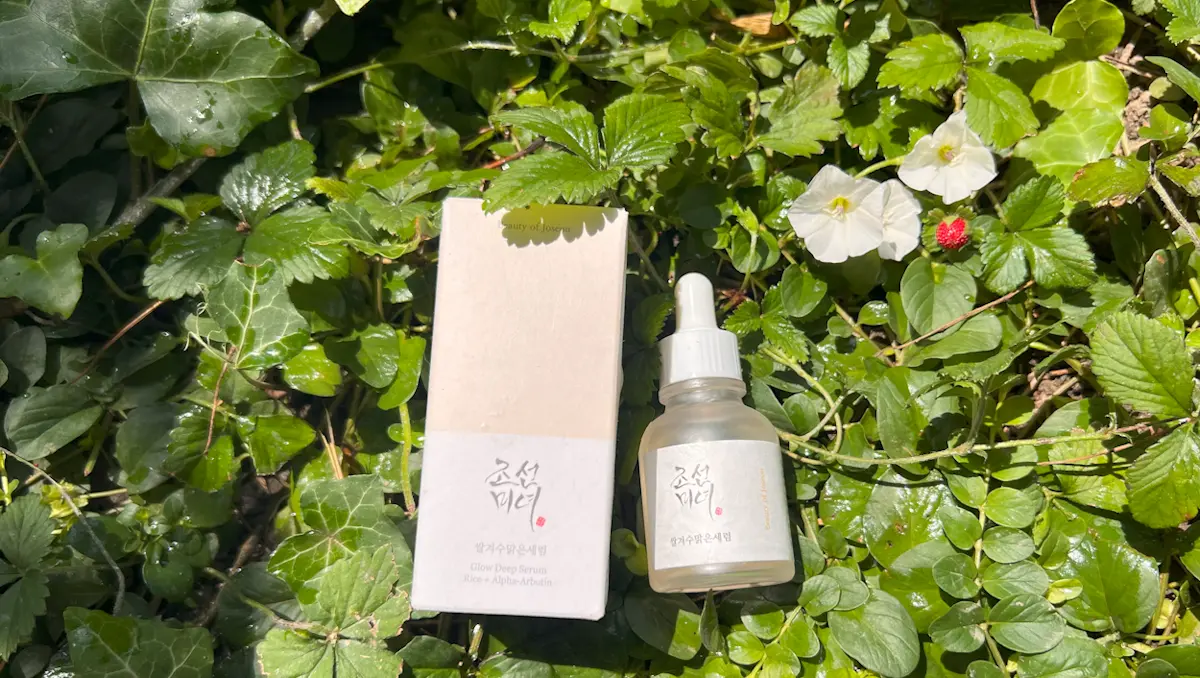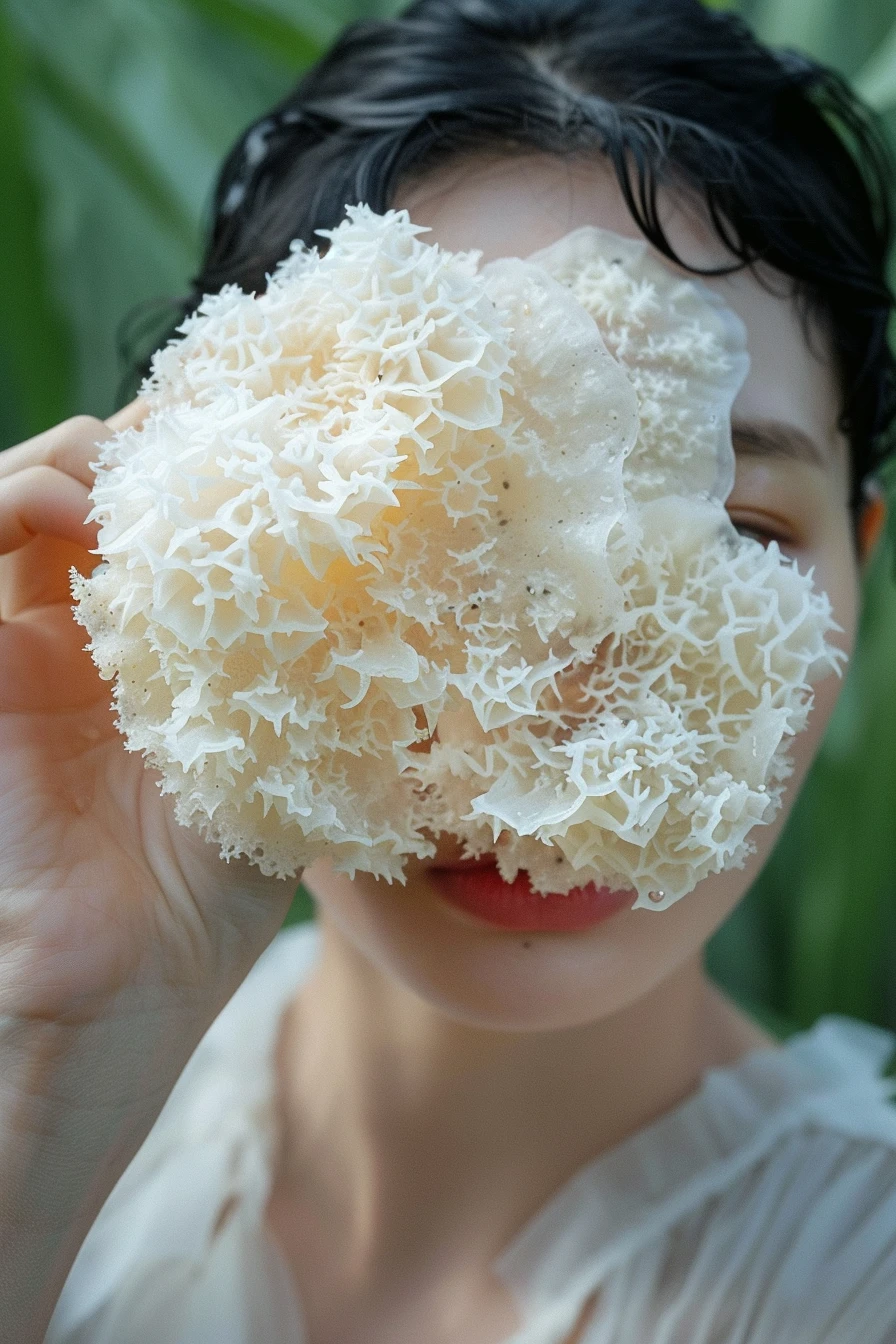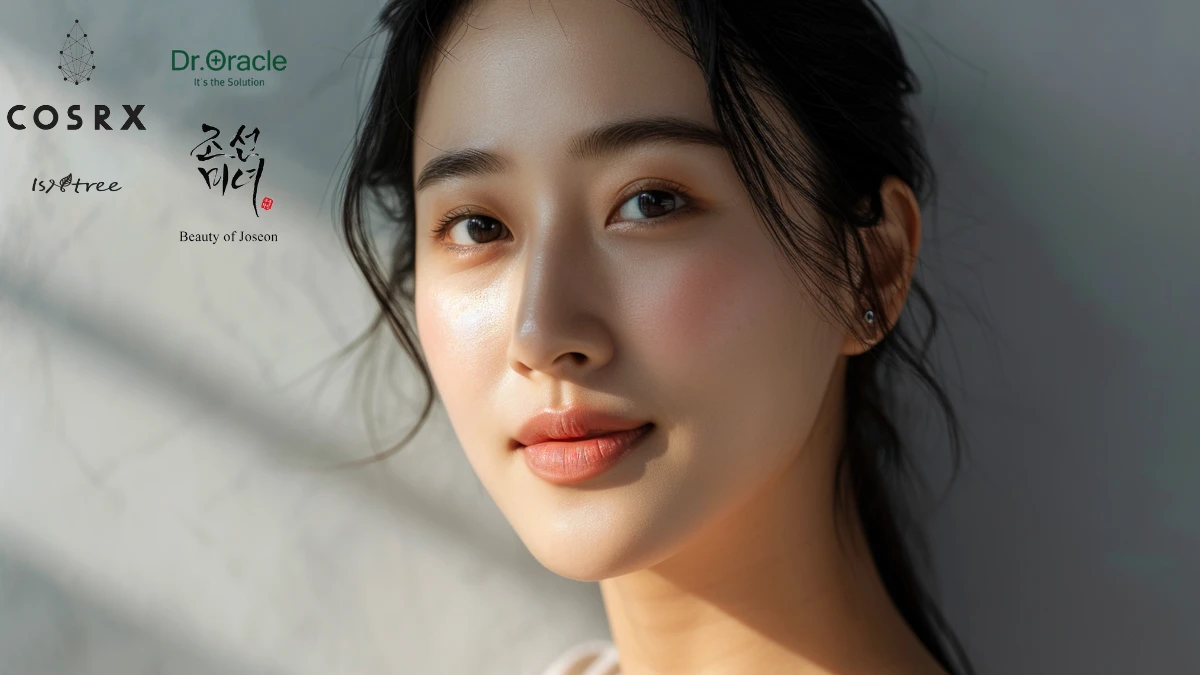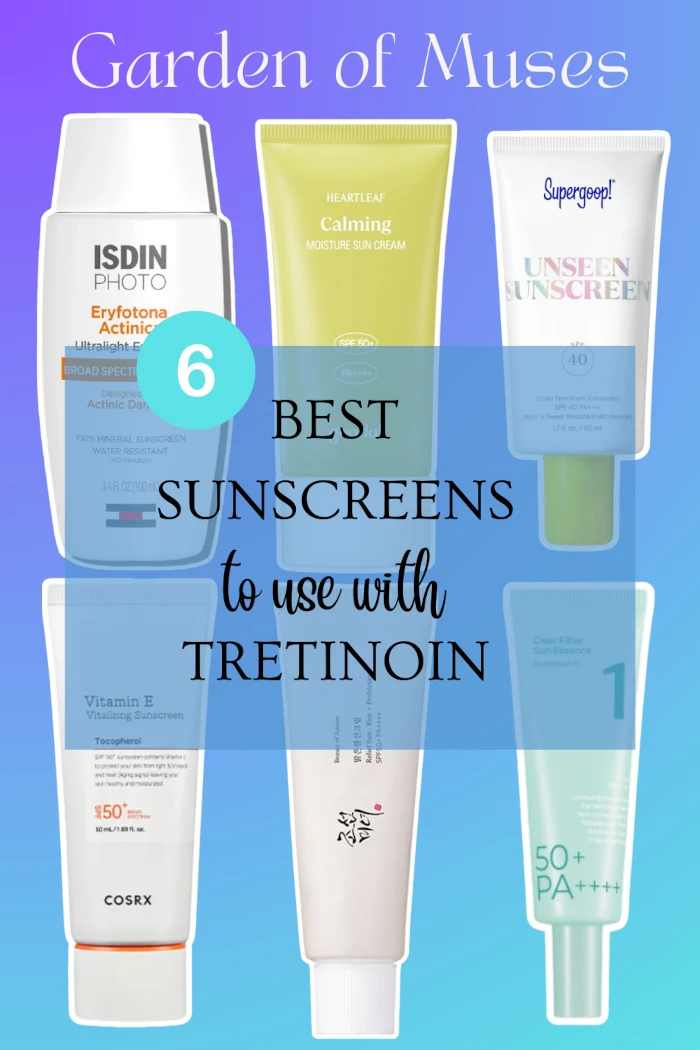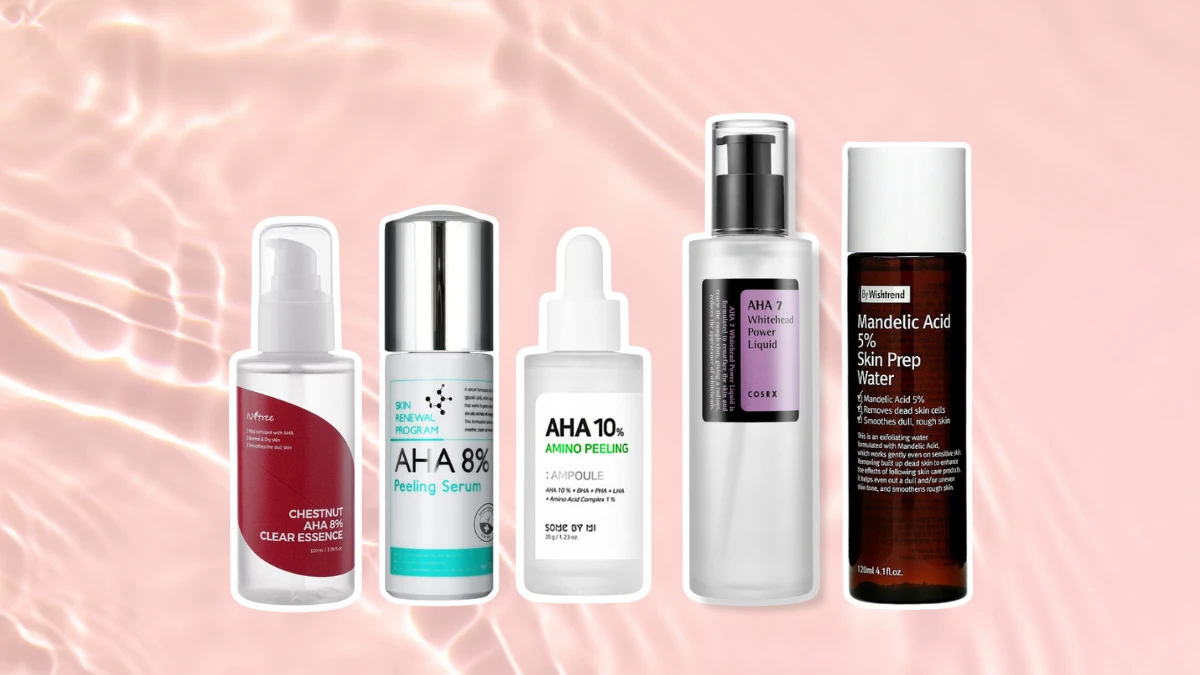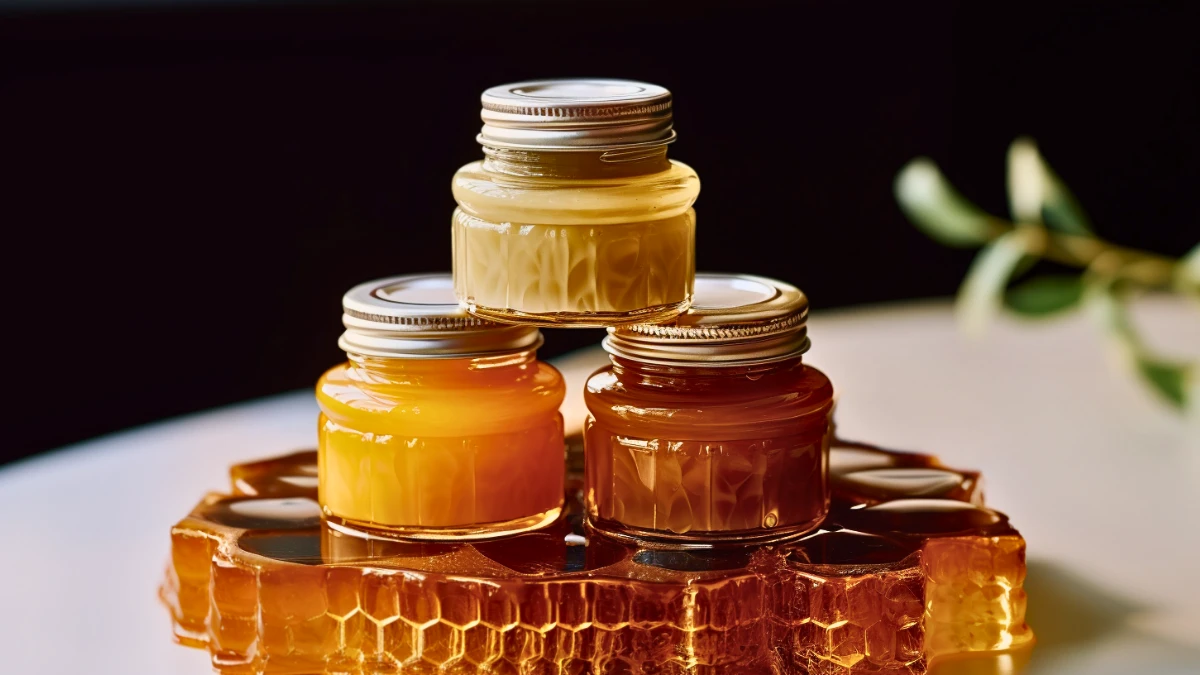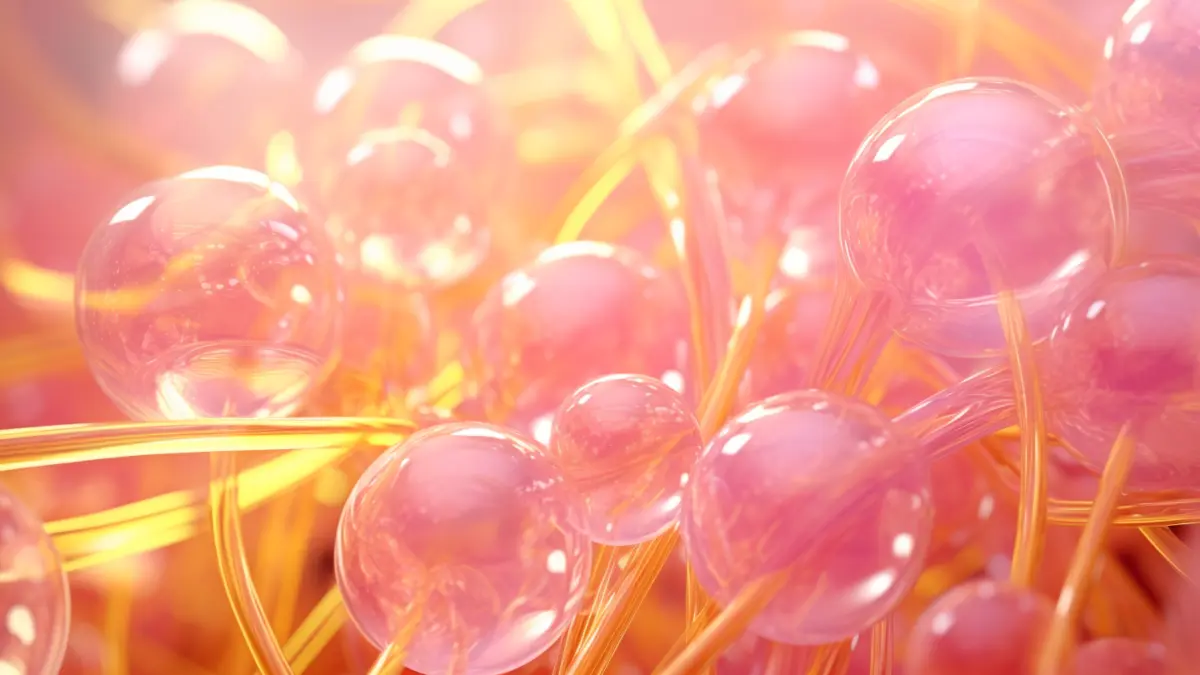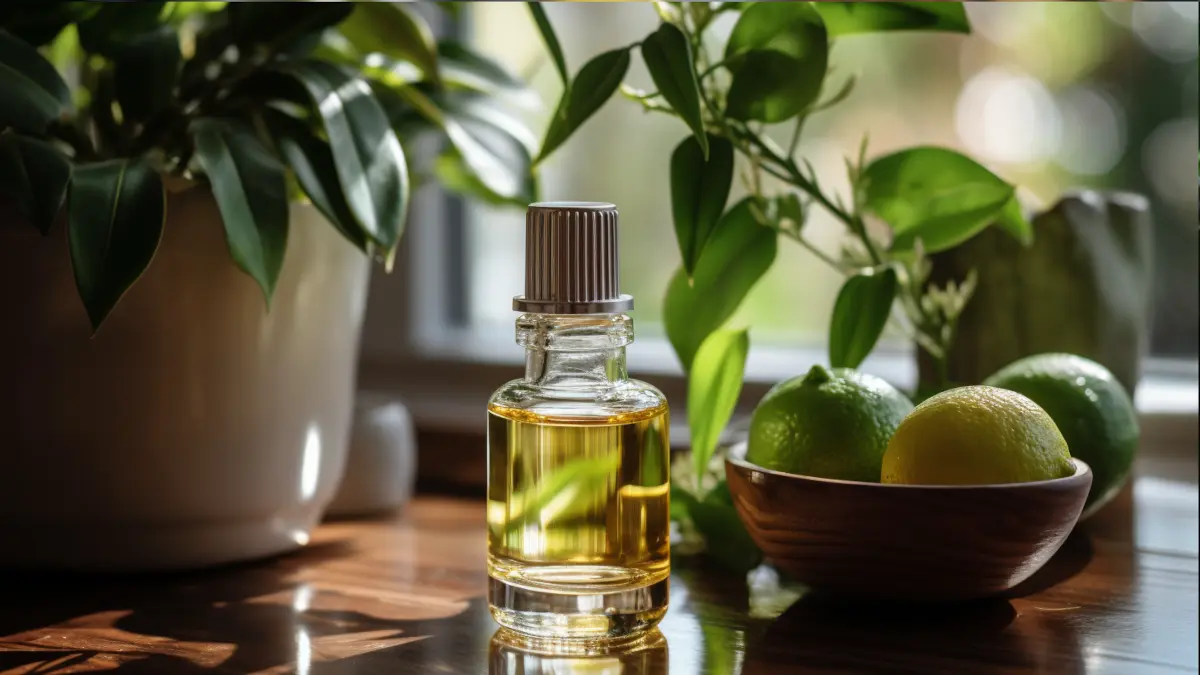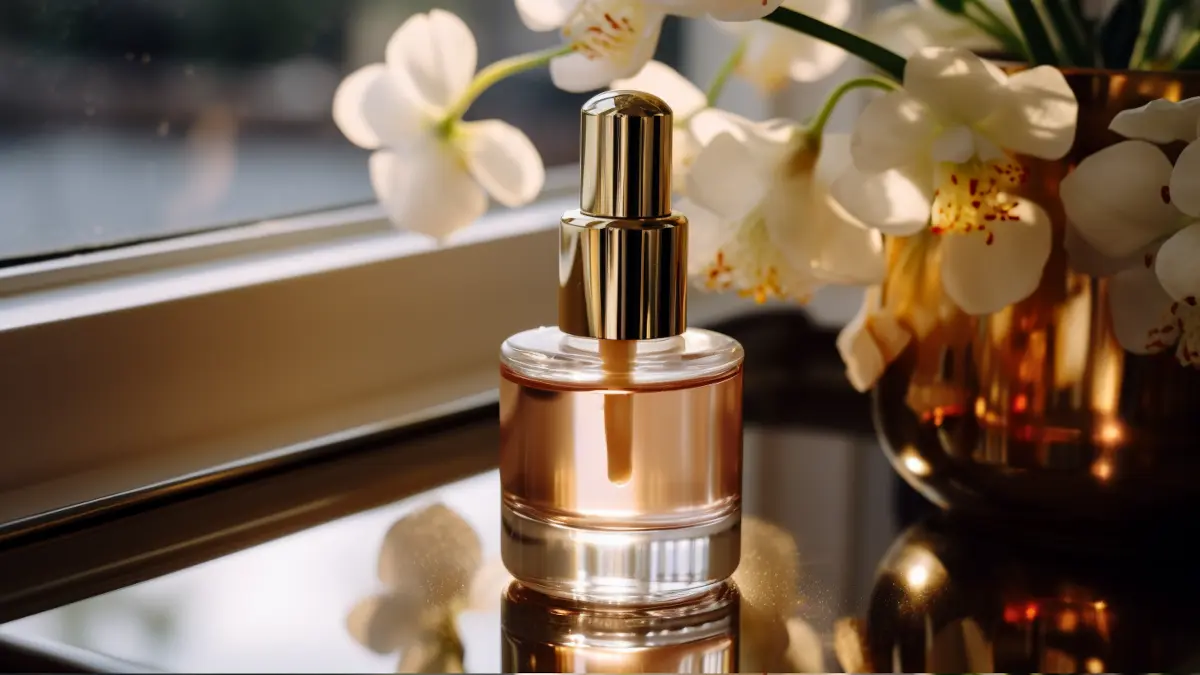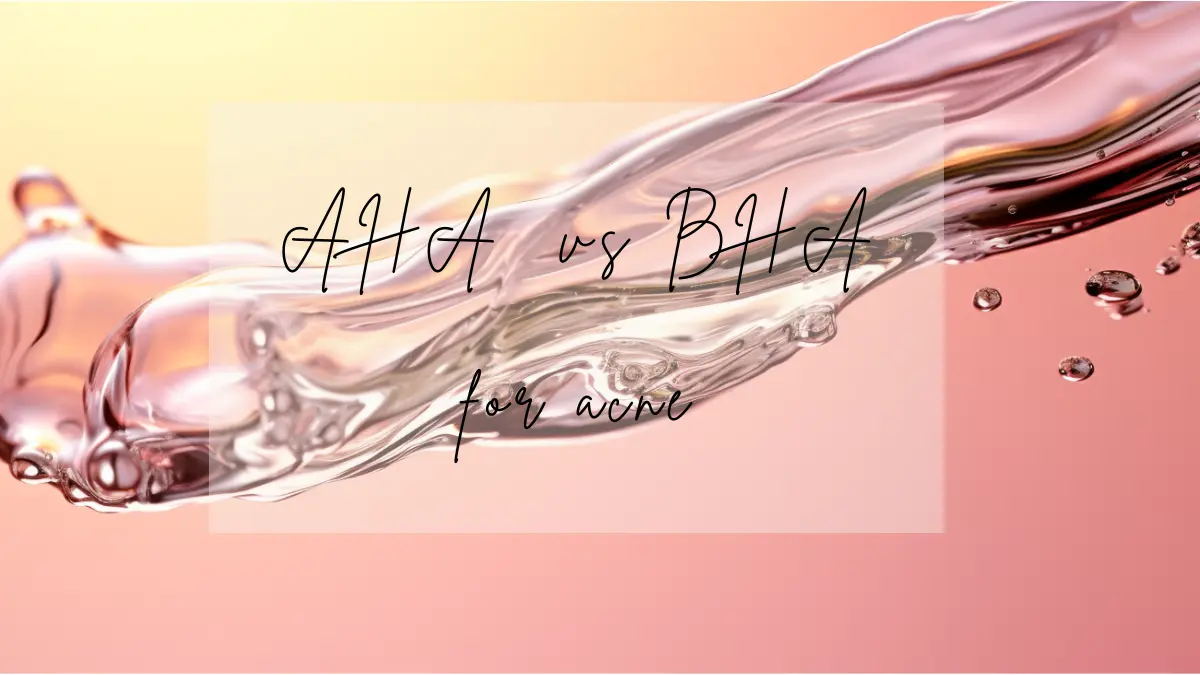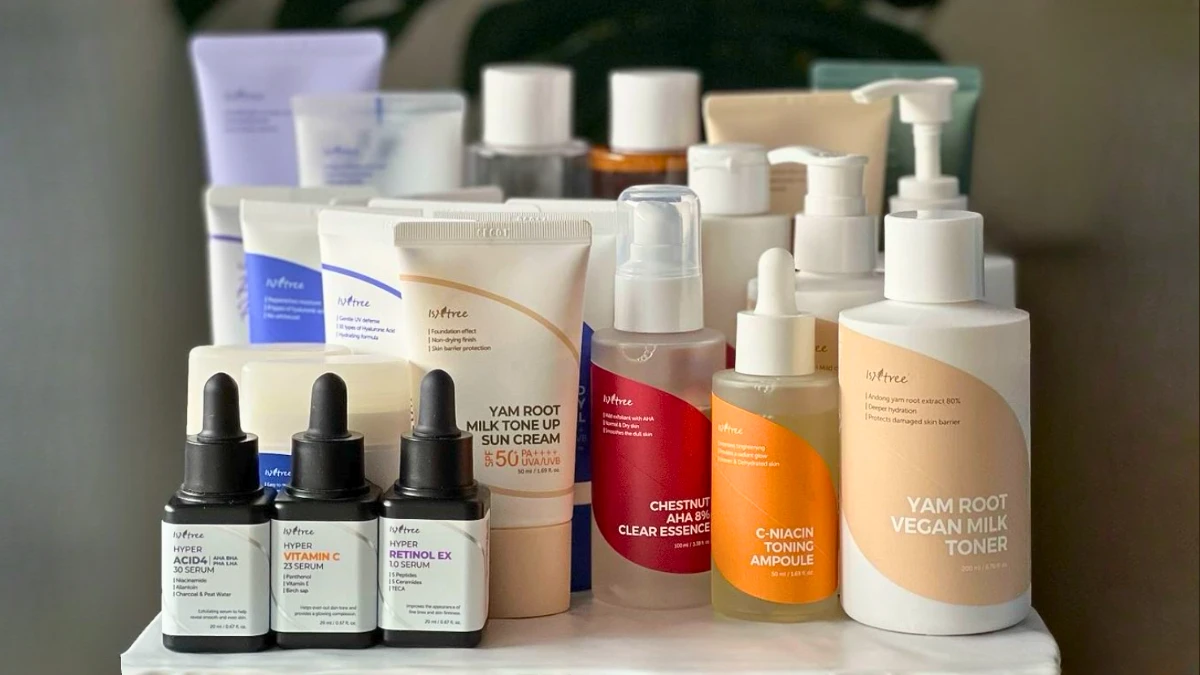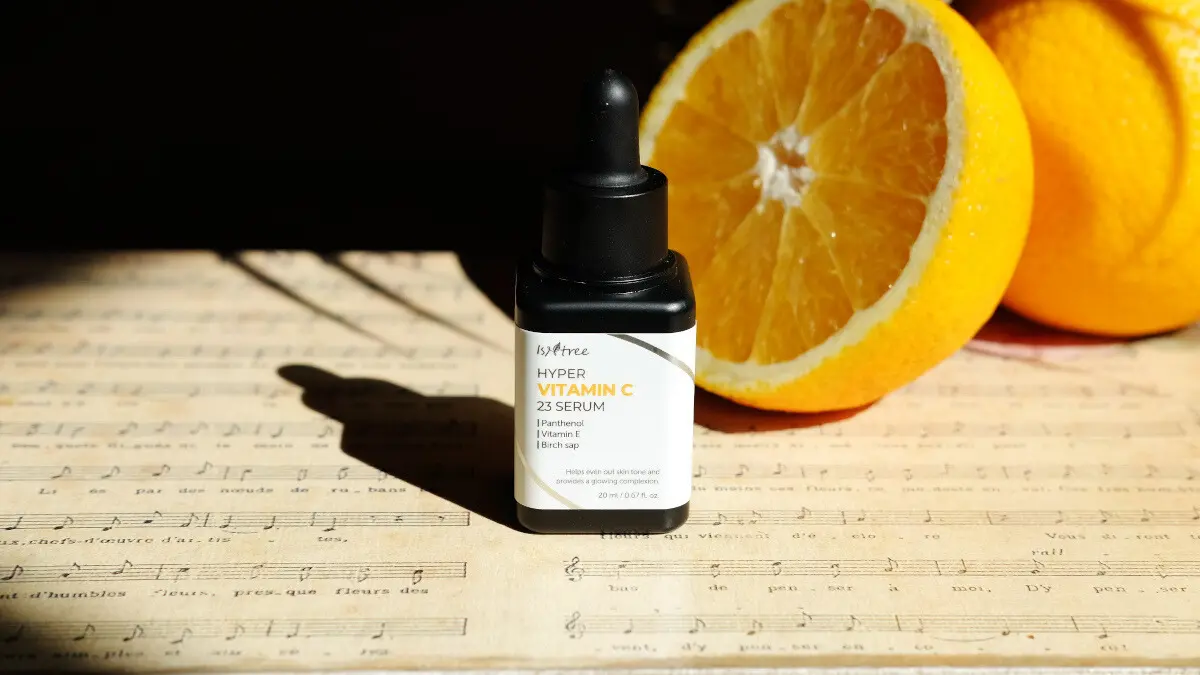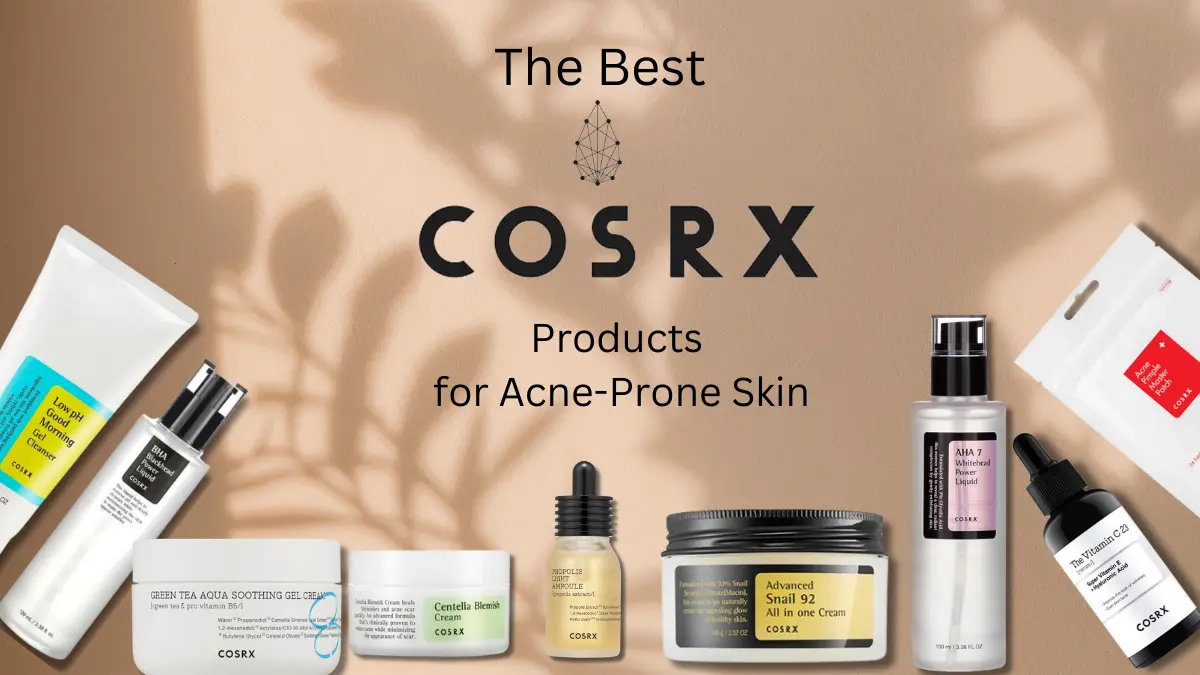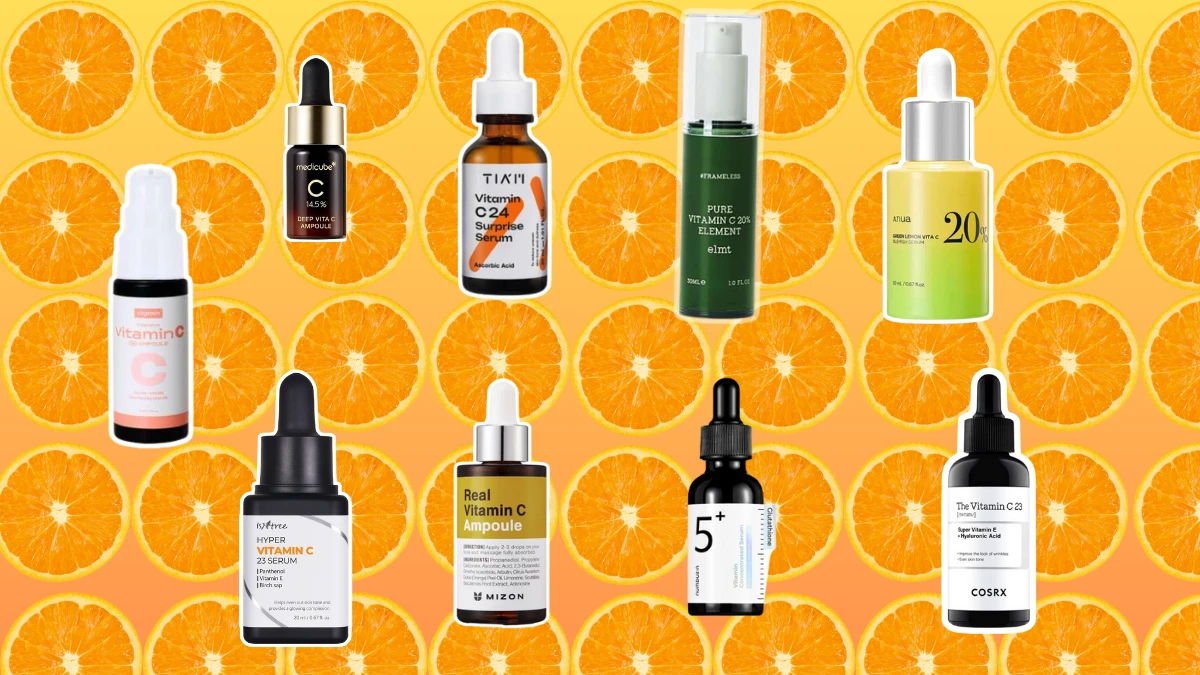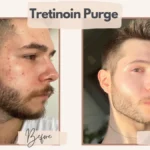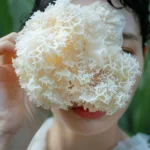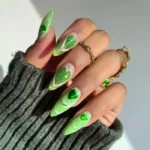It is no secret that I love using toners and serums. Since returning home, my skin hasn’t been behaving as it is taking its time to adjust to the dead cold Chicago winters, and I have found that using Beauty of Joseon Glow Deep Serum has helped my skin.
Serums provide my skin with much-needed extra nourishment through hydration and moisture. They also provide my skin with nutrients in the form of Vitamins and minerals and act as an antioxidant boost. I have spent more money on serums than moisturizers and used them more than usual. Recently, my favorite online store, YesStyle, had a generous promotion, and I jumped at the offer and purchased almost all Beauty of Joseon products.
I received a sample of the Beauty of Joseon Glow Deep Serum a few months before this purchase, and I was pretty surprised by how much I enjoyed using it. I liked it so much that it was on my wishlist, as I had been impressed with how it performed.
Beauty of Joseon Glow Deep Serum Review:
Where to Buy the Beauty of Joseon Glow Deep Serum?
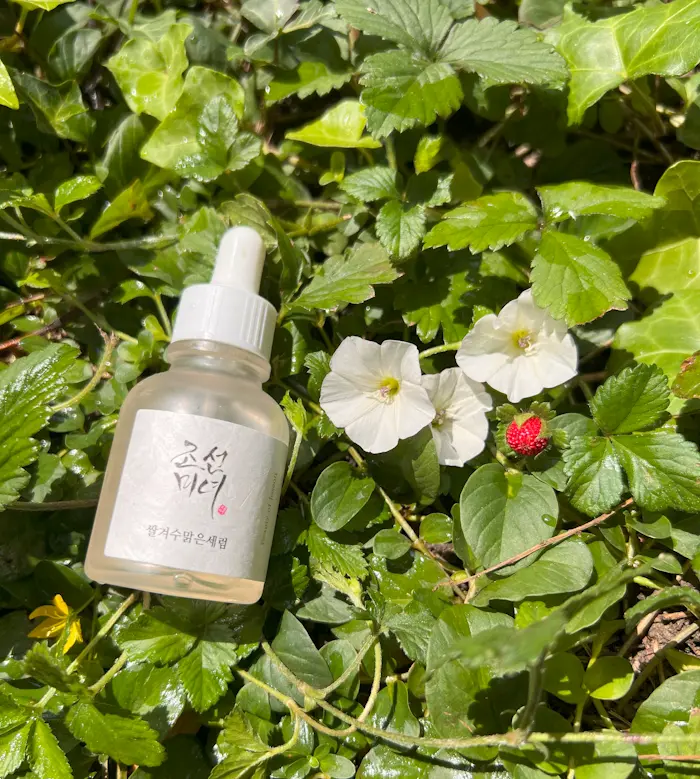
The Beauty of Joseon Glow Deep Serum comes in a one fl. oz. / 30ml glass dropper bottle, the standard quantity for most serums. For all you lucky people in the US who can get Prime delivery, you can buy the Glow Deep serum from Beauty of Joseon’s official store on Amazon*.
You can also shop for Beauty of Joseon Glow Deep Serum: Rice + Alpha-Arbutin on trusted Asian international shops, such as YesStyle, StyleVana, and StyleKorean.
Officially, it retails for $17, but I’ve seen it frequently discounted for up to 40% on YesStyle. Here’s our editor’s guide to shopping for Korean skincare.
The Beauty of Joseon Brand

By now, Beauty of Joseon is a pretty well-known Korean brand. Drawing inspiration from a 19th-century encyclopedia, the brand has unlocked the skin care secrets of upper-class Korean women.
All the products from the Beauty of Joseon brand feature hanbang ingredients. Their products are made in Korea and cater to common skin issues such as roughness, dehydration, and dull skin tone, delivering natural beauty enhancements.
What Is the Beauty of Joseon Glow Deep Serum?
The Beauty of Joseon Glow Deep Serum is a serum designed to fade hyperpigmentation.
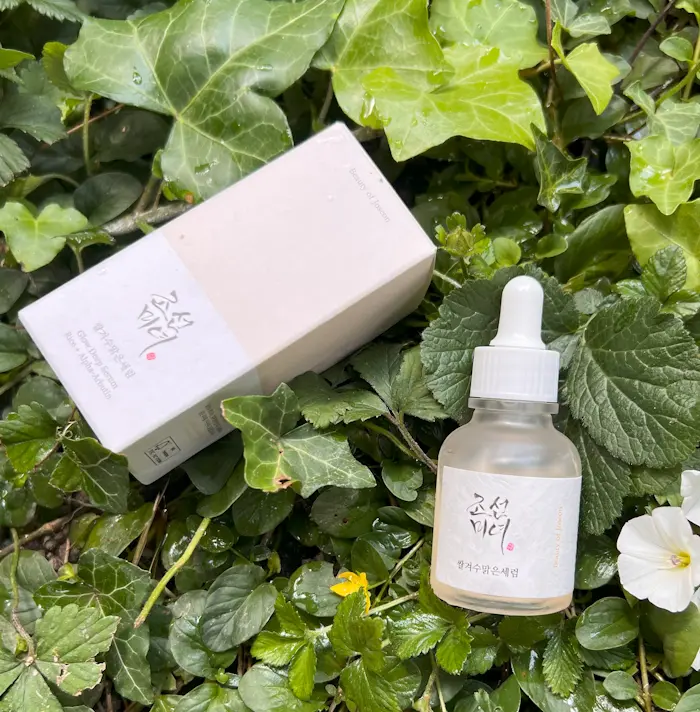
Beauty of Joseon Glow Deep Serum Claims
This serum is designed for individuals dealing with pigmentation issues and uneven skin complexion. Infused with 68% rice bran water and 2% alpha arbutin, it works diligently to illuminate and boost the health of your skin.
Beauty of Joseon
Who Is this Serum For?
Beauty of Joseon Glow Deep Serum is ideal for any skin type. It focuses on addressing dull skin tone and pigmentation issues. However, if you have sensitive skin, it’s important to note that alpha-arbutin may cause a reaction. To be safe, we always recommend performing a patch test before use.
For hyperpigmentation, the manufacturer recommends layering it with the Revive Serum and Ginseng Essence Water, which contains saponin-rich ginseng water.
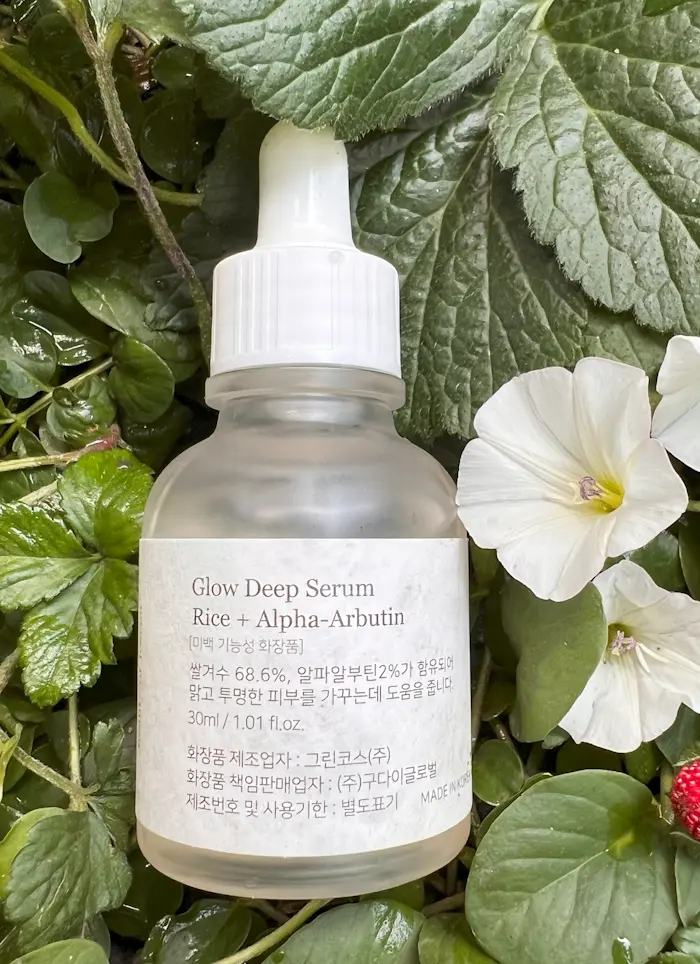
Beauty of Joseon Glow Deep Serum Ingredients
Beauty of Joseon Glow Deep Serum Ingredients List (last checked [current_year])
Oryza Sativa (Rice) Bran Water, Water, Glycerin, Butylene Glycol, 1,2-Hexanediol, Dipropylene Glycol, Alpha-Arbutin, Niacinamide, Methyl Gluceth-20, Panthenol, Polyglycerin-3, Trehalose, Glyceryl Glucoside, Hydrolyzed Jojoba Esters, Hydroxyethyl Acrylate/Sodium Acryloyldimethyl Taurate Copolymer, Ethylhexylglycerin, Hydroxyethylcellulose, Xanthan Gum, Arginine, Acrylates/C10-30 Alkyl Acrylate Crosspolymer, Disodium EDTA, Coptis Japonica Root Extract, Sorbitan Isostearate, Glucose, Coix Lacryma-Jobi Ma-Yuen Seed Extract, Glycine Soja (Soybean) Seed Extract, Hordeum Distichon (Barley) Extract, Oryza Sativa (Rice) Extract, Sesamum Indicum (Sesame) Seed Extract, Triticum Vulgare (Wheat) Seed Extract, Vigna Radiata Seed Extract, Zea Mays (Corn) Kernel Extract.
Herbs Humectant/Moisturizing Active
Key Ingredients Explained
Rice Bran Water (68%)
The hero ingredient for this serum is Rice bran water, which, throughout Korean history, rice has been a vital component in both cuisine and skincare. During the Joseon Dynasty, rice bran water was utilized as a toner, earning the moniker Beauty Water due to its ability to enhance the appearance of skin. Thanks to its high concentration of amino acids and minerals, rice bran water effectively hydrates dry skin and calms and relaxes irritated and tired skin.
Guide on Best Humectants in Skincare
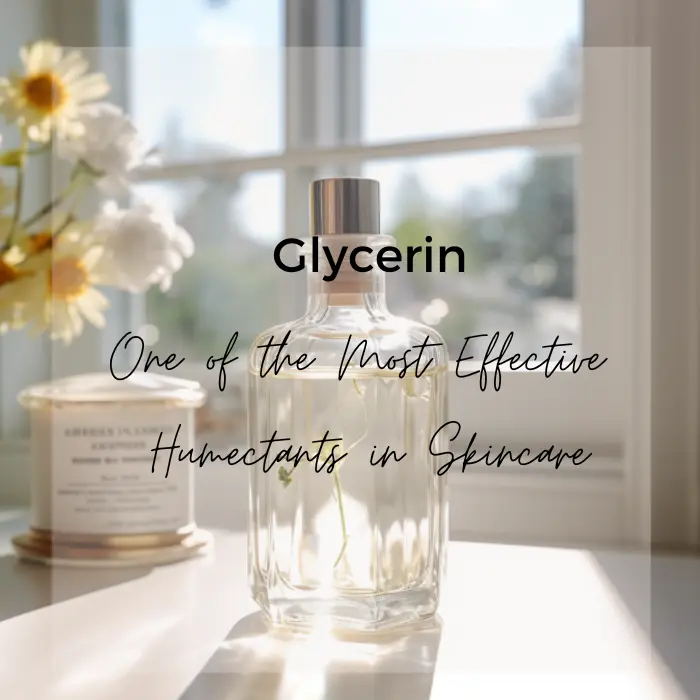
Glycerin
Good old trusty glycerin is often overlooked as an inexpensive or inelegant ingredient in skincare, but it is one of the best, most reliable humectants.
Glycerin is also probably the most well-known humectant. It:
- Hydrates. Glycerin is a very effective humectant, used in many moisturizers to increase skin hydration.
- Occurs naturally in your skin as part of its home-grown moisturizing system, the natural moisturizing factor (NMF).
- Strengthens skin barrier. Glycerin also keeps the skin’s lipids flexible, strengthening your skin barrier.
- Softens. Glycerin softens the skin so other hydrating ingredients can more easily penetrate the skin.
- Reduces TEWL. Glycerin helps slow down transepidermal water loss (TEWL). Like other humectants, it works by sitting in the top layers of your skin and attracting water from the air and the deeper layers, leaving your skin surface plump and hydrated, even when the weather is arid.
Alpha-Arbutin (2%)
Arbutin is an ingredient initially derived naturally from the dried leaves of different plants, such as berries of bearberry, blueberry, and cranberry plants. With the progressions of science, it can also be made synthetically now.
Many studies have shown that Arbutin has had success in the improvement of skin hyperpigmentation. Arbutin works by slowly releasing hydroquinone through hydrolysis, inhibiting the enzyme tyrosinase and preventing melanin production (pigmentation). In clinical trials conducted on actual people, scientists have found that arbutin has successfully shown that it can lighten skin tone in 12 weeks.
Arbutin is particularly effective in fading melasma, and a concentration of 3% is the most effective for fading this type of hyperpigmentation.
Other studies show that Arbutin is potentially successful in other areas of skincare, acting as an anti-inflammatory for the skin and an antioxidant to fight off free radicals within the environment. While many studies have shown the success of Arbutin in helping the skin with dullness, post-inflammatory hyperpigmentation (PIH), and skin lightening, more research needs to be done on the claims of Arbutin being a successful antioxidant and anti-inflammatory.
However, despite this, the most popular use of Arbutin in skincare is, first and foremost, in hyperpigmentation and skin lightening. Its success is shown in many Asian skincare lines, which promise to fight hyperpigmentation and to ‘whiten’ the skin. It is perhaps one of the most underused skincare ingredients in the Western world, with only a few products I know of using this ingredient.
Niacinamide

While Niacinamide has recently gained popularity in the Western market, it has long been a staple in Asian skincare routines. This potent ingredient is a topical form of vitamin B3, known for its remarkable benefits in skin care.
Several well-documented studies show that when used topically, niacinamide can:
- Strengthen the skin barrier by increasing ceramides and lipids, increasing stratum corneum thickness, and decreasing transepidermal water loss;
- Improve the surface structure and smoothe out wrinkles;
- Boost hydration;
- Control sebum production;
- Reduce acne;
- Calm redness and even out red blotchiness;
- Improve skin texture;
- Lessen hyperpigmentation;
- Brighten sallowness of the skin;
- Treat rosacea, melasma and psoriasis.
In short, niacinamide is a fantastic ingredient that can do wonders for your skin, no matter what type of skin you have.
To learn more, please read our Complete Guide on Niacinamide and How to Reduce Hyperpigmentation with Niacinamide.
Panthenol
Panthenol is a fantastic skincare ingredient that needs more spotlight. It’s naturally present in all living cells and commonly used in many skin care products.
Apart from its humectant properties in skincare, panthenol also reduces itching and inflammation of the skin, mainly when used for longer than four weeks, improves skin elasticity, and accelerates wound healing. It also has the added advantage of acting as an emollient. It smooths and softens skin cracks and helps prevent water loss.
Panthenol also has a fantastic ability to penetrate the skin’s lower layers. Upon application, it is immediately converted to pantothenic acid (vitamin B5), which then binds to and holds water.
Arginine
Arginine is an amino acid that helps to strengthen and repair the skin’s barrier. It’s a natural moisturizing factor, a humectant that may help speed up wound healing.
Beauty of Joseon Glow Deep Serum Does Not Contain the Following:
Hyaluronic acid, alcohol, essential oils, fragrance, or allergens. It is vegan and cruelty-free.
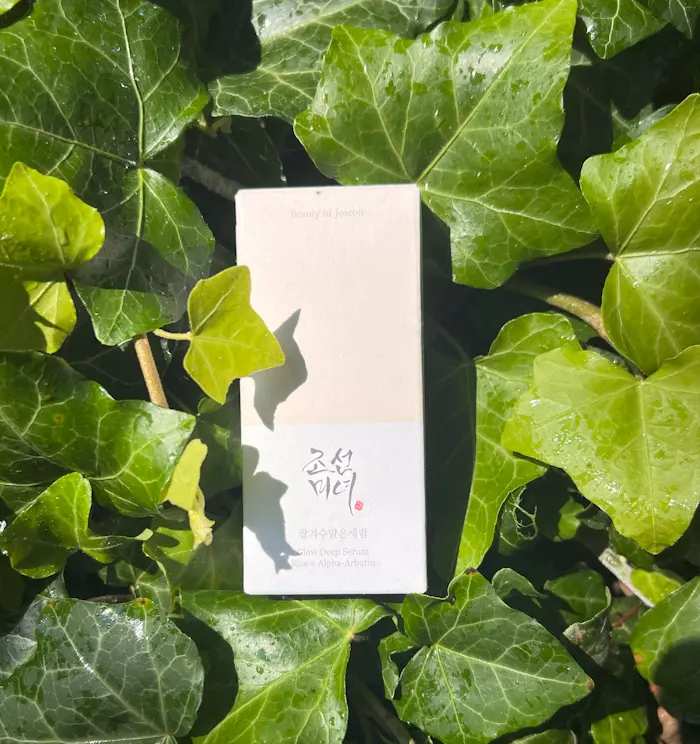
Packaging
It comes in a typical frosted glass serum bottle with a dropper.
Scent
The serum has no scent.
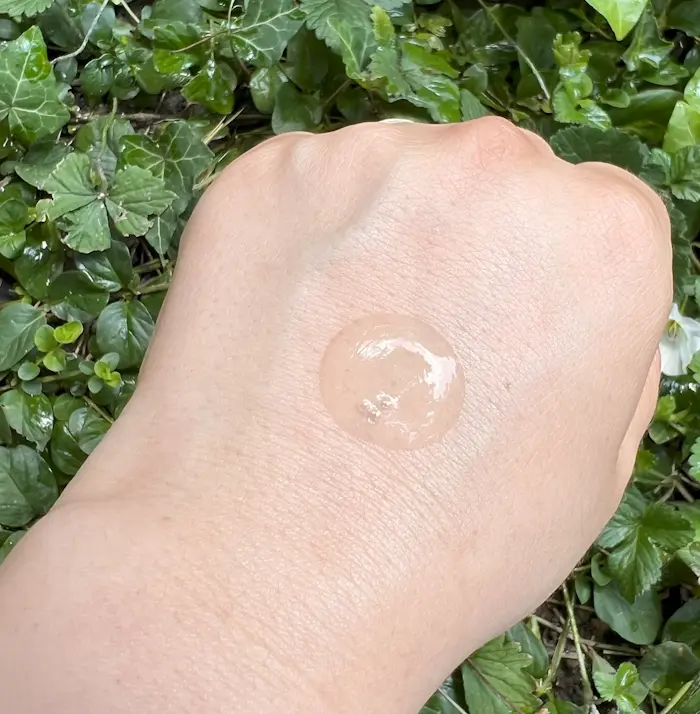
Texture
It is transparent, with a typical serum-like consistency. It’s not too thick nor too thin and layers great.
The finish is not sticky at all. It sinks into my skin within a couple of minutes. A little goes a long way, as it spreads nicely.
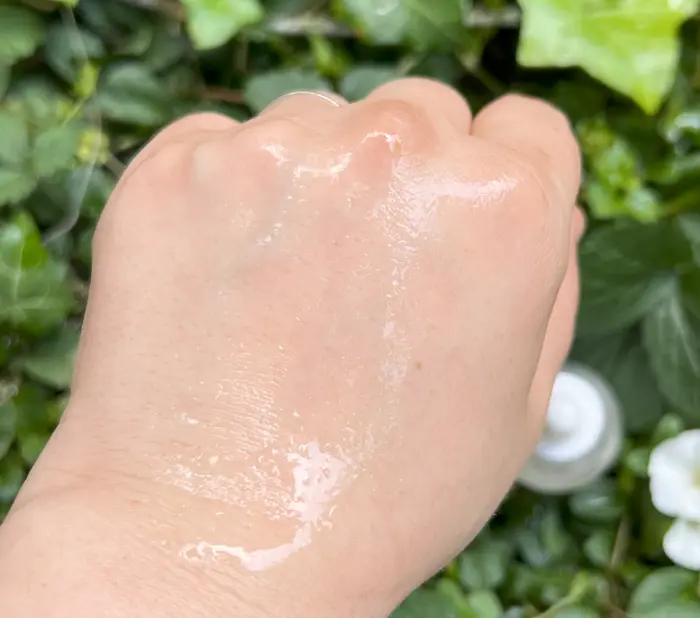
My Experience with the Beauty of Joseon Glow Deep Serum
I have been using this serum during the hotter months. My skin is usually normal in the summer and tends to be dry in the winter. Despite having resilient skin that has never reacted negatively to skincare products, I prioritize strengthening my skin’s barrier as a Tretinoin user. My skin concerns include hyperpigmentation, blackheads on my nose and chin, occasional hormonal pimples, and aging.
Beauty of Joseon is an excellent brand for non-fussy formulations with tried and authentic ingredients. I think I will run out of steam if I try to list every amazing humectant and anti-oxidant herb packed into this formula, but I can tell you that this is one of their most popular products. It’s super affordable, too, which we love to hear.
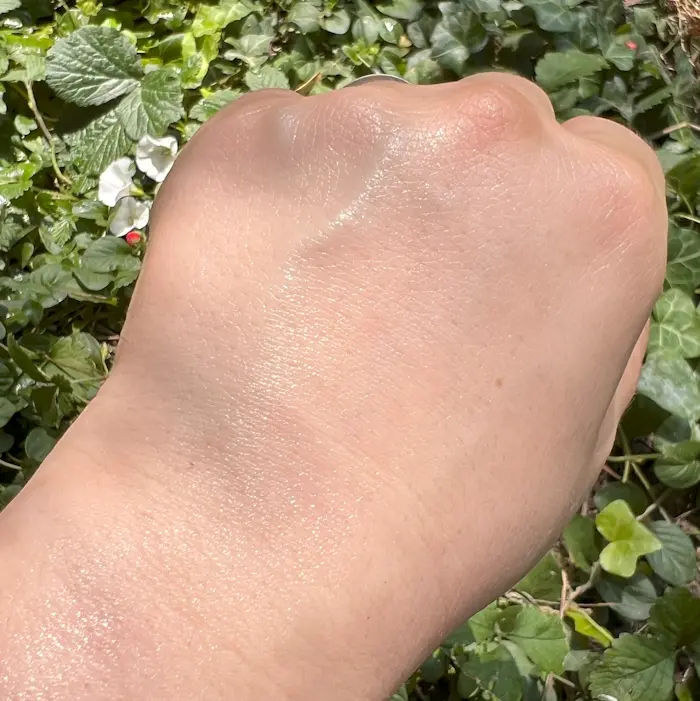
The Beauty of Joseon Glow Deep Serum contains a beautiful concoction of brightening and soothing ingredients that create a wonderfully luxurious texture and feeling on the skin.
One of the reasons I love the Beauty of Joseon Glow Deep Serum is that it makes my skin glow from the inside by brightening dark spots and evening out my skin tone. It hydrates and balances my skin with nourishing and active ingredients that feel smooth. It’s gentle and doesn’t cause any skin sensitivity.
[sibwp_form id=1]
How to use the Beauty of Joseon Glow Deep Serum?
- First cleanse;
- Second cleanse if necessary;
- Apply toner;
- Apply the Glow Deep Serum. I put two full droppers of serum on my palm and pat gently to aid absorption.
- Tretinoin (for antiaging purposes, in my case)
- I follow with a moisturizer;
- Don’t forget the sunscreen!
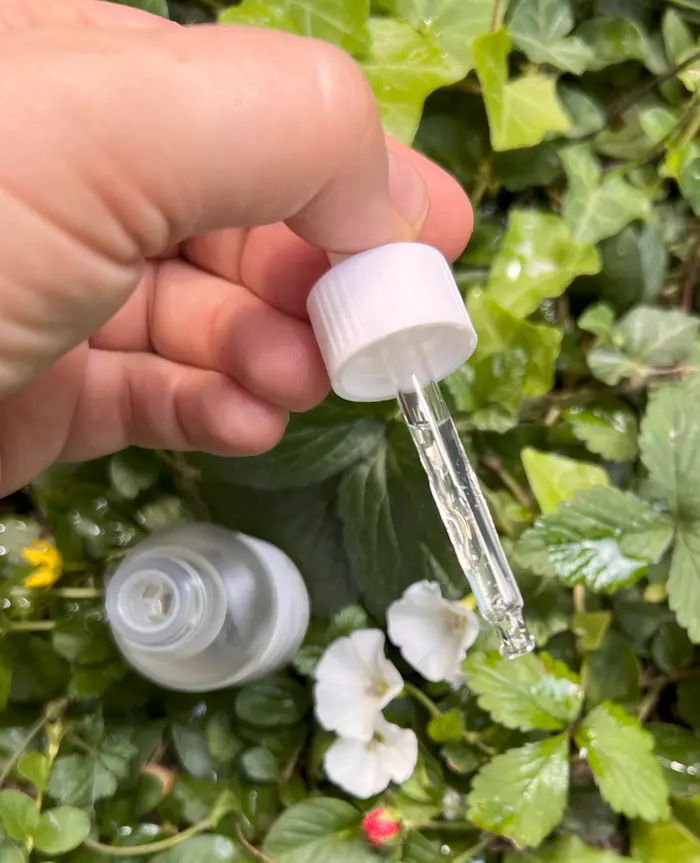
I use this serum in my nighttime routine because I sometimes get in a hurry and skip steps in the morning. Also, alpha arbutin is vulnerable to light and heat, so it is recommended for use in the evening.
The manufacturer recommends storing the serum in a cool, dark place and using it immediately after opening. It was probably not my brightest idea to take it outside in the middle of the day.
Pros
- skin glows
- brightening effect
- affordable
- suitable for all skin types
- wears well under makeup
Cons
- None I can think of.
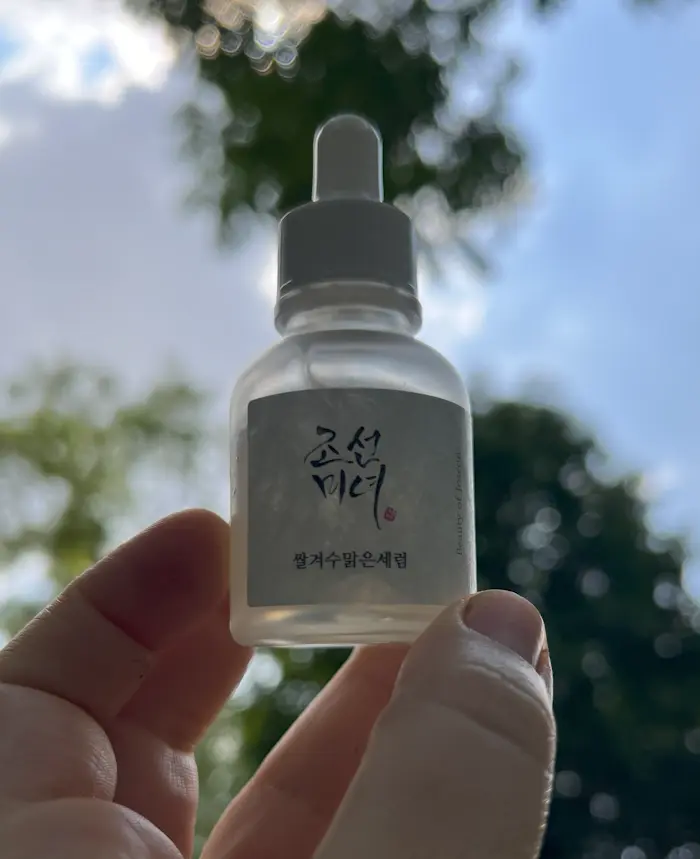
Conclusion
Beauty of Joseon serums are outstanding; I can’t recommend them enough.
I have been enjoying using Beauty of Joseon Glow Deep Serum as it hydrates, keeps my skin balanced and healthy, and gives it a gorgeous, dewy glow that looks amazing underneath makeup. The Beauty of Joseon Glow Deep Serum is an excellent product for achieving a healthy and glowing complexion.
If you’re doubtful about this product, go for it. It’s excellent, and you won’t regret it.
Will I repurchase Beauty of Joseon Glow Deep Serum?
I enjoy this product and am almost certainly repurchasing it.
Rating 5/5
Shop for Beauty of Joseon Glow Deep Serum
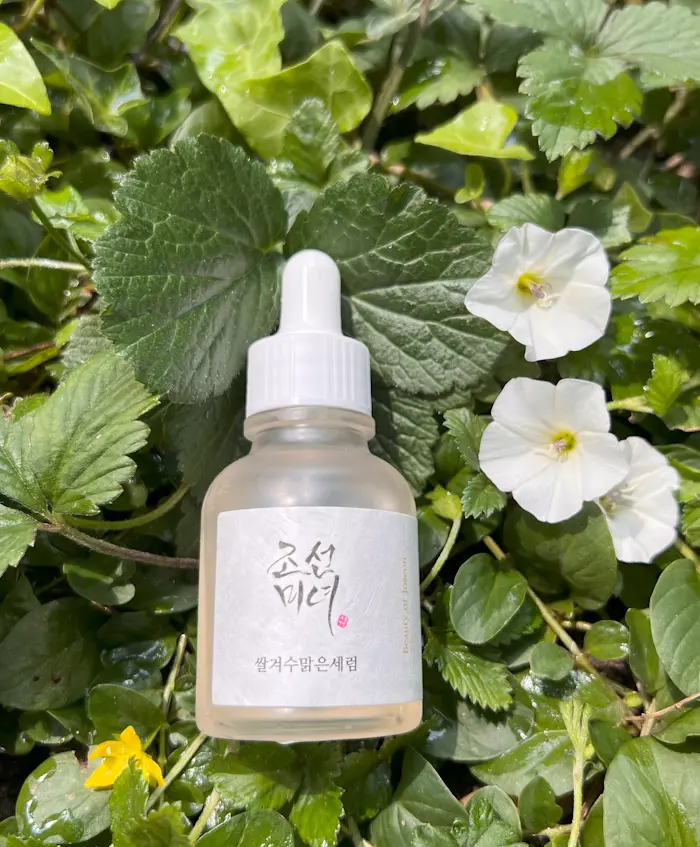
Lastly, I was not paid for this review or received it as a gift.
As always, you do you; be kind to your skin and yourself! Remember that every person’s skin and skin type is different, so what might work for me might not work for you, and vice versa. So, before adding a new product to your skincare routine, it pays to do a little research first.
Before adding the Beauty of Joseon Glow Deep Serum to your skincare regimen, ensure you are not allergic to it or its ingredients. You should also consult your doctor if you are pregnant, breastfeeding, or have any medical conditions or medications that may interact with the Glow Deep serum. Always do a patch test before applying the Beauty of Joseon Glow Deep Serum on your skin to avoid adverse reactions.
I am not a dermatologist or licensed aesthetician, but I have sufficient experience and knowledge I gained by testing multiple products and self-exploration. Unsure? Best to consult your dermatologist.
Happy shopping, and don’t forget the sunscreen! Here’s to great skin in [current_year]!
Show Me Proof
- Boo, Yong Chool. “Arbutin as a skin depigmenting agent with antimelanogenic and antioxidant properties.” Antioxidants 10, no. 7 (2021): 1129.
- Boissy, Raymond E., Marty Visscher, and Mitchell A. DeLong. “DeoxyArbutin: a novel reversible tyrosinase inhibitor with effective in vivo skin lightening potency.” Experimental dermatology 14, no. 8 (2005): 601-608.
- Chularojanamontri, Leena, Papapit Tuchinda, Kanokvalai Kulthanan, and Kamolwan Pongparit. “Moisturizers for acne: What are their constituents?.” The Journal of clinical and aesthetic dermatology 7, no. 5 (2014): 36.
- Björklund S, Engblom J, Thuresson K, Sparr E. Glycerol and urea can be used to increase skin permeability in reduced hydration conditions. Eur J Pharm Sci. 2013 Dec 18;50(5):638-45. doi: 10.1016/j.ejps.2013.04.022. Epub 2013 May 3. PMID: 23643739.
- Fluhr, J. W., R. Darlenski, and C. J. B. J. Surber. “Glycerol and the skin: holistic approach to its origin and functions.” British Journal of Dermatology 159, no. 1 (2008): 23-34.
- Verdier‐Sévrain, Sylvie, and Frédéric Bonté. “Skin hydration: a review on its molecular mechanisms.” Journal of cosmetic dermatology 6, no. 2 (2007): 75-82.
- Tanno, O., Y. Ota, N. Kitamura, T. Katsube, and S. Inoue. “Nicotinamide increases biosynthesis of ceramides as well as other stratum corneum lipids to improve the epidermal permeability barrier.” British Journal of Dermatology 143, no. 3 (2000): 524-531.
- Mohammed, D., J. M. Crowther, P. J. Matts, J. Hadgraft, and M. E. Lane. “Influence of niacinamide containing formulations on the molecular and biophysical properties of the stratum corneum.” International journal of pharmaceutics 441, no. 1-2 (2013): 192-201.
- Snaidr, Victoria A., Diona L. Damian, and Gary M. Halliday. “Nicotinamide for photoprotection and skin cancer chemoprevention: A review of efficacy and safety.” Experimental dermatology 28 (2019): 15-22.
- Gehring, W. “Nicotinic acid/niacinamide and the skin.” Journal of Cosmetic Dermatology 3, no. 2 (2004): 88-93.
- Soma, Yoshinao, Masato Kashima, Akiko Imaizumi, Hideto Takahama, Tamihiro Kawakami, and Masako Mizoguchi. “Moisturizing effects of topical nicotinamide on atopic dry skin.” International journal of dermatology 44, no. 3 (2005): 197-202.
- Draelos, Zoe Diana, Akira Matsubara, and Kenneth Smiles. “The effect of 2% niacinamide on facial sebum production.” Journal of Cosmetic and Laser Therapy 8, no. 2 (2006): 96-101.
- Shahmoradi, Zabiolah, Farib Iraji, Amir Hossein Siadat, and Azamosadat Ghorbaini. “Comparison of topical 5% nicotinamid gel versus 2% clindamycin gel in the treatment of the mild-moderate acne vulgaris: A double-blinded randomized clinical trial.” Journal of Research in Medical Sciences: The Official Journal of Isfahan University of Medical Sciences 18, no. 2 (2013): 115.
- Ungerstedt, J. S., M. Blombäck, and T. Söderström. “Nicotinamide is a potent inhibitor of proinflammatory cytokines.” Clinical & Experimental Immunology 131, no. 1 (2003): 48-52.
- Bissett, D. L., K. Miyamoto, P. Sun, J. Li, and C. A. Berge. “Topical niacinamide reduces yellowing, wrinkling, red blotchiness, and hyperpigmented spots in aging facial skin 1.” International journal of cosmetic science 26, no. 5 (2004): 231-238.
- Darlenski, Razvigor, Jana Kazandjieva, Nikolai Tsankov, and Joachim W. Fluhr. “Acute irritant threshold correlates with barrier function, skin hydration and contact hypersensitivity in atopic dermatitis and rosacea.” Experimental dermatology 22, no. 11 (2013): 752-753.
- Navarrete-Solís, Josefina, Juan Pablo Castanedo-Cázares, Bertha Torres-Álvarez, Cuauhtemoc Oros-Ovalle, Cornelia Fuentes-Ahumada, Francisco Javier González, Juan David Martínez-Ramírez, and Benjamin Moncada. “A double-blind, randomized clinical trial of niacinamide 4% versus hydroquinone 4% in the treatment of melasma.” Dermatology research and practice 2011 (2011).
- Namazi, Mohammad Reza. “Nicotinamide: a potential addition to the anti‐psoriatic weaponry.” The FASEB journal 17, no. 11 (2003): 1377-1379.
